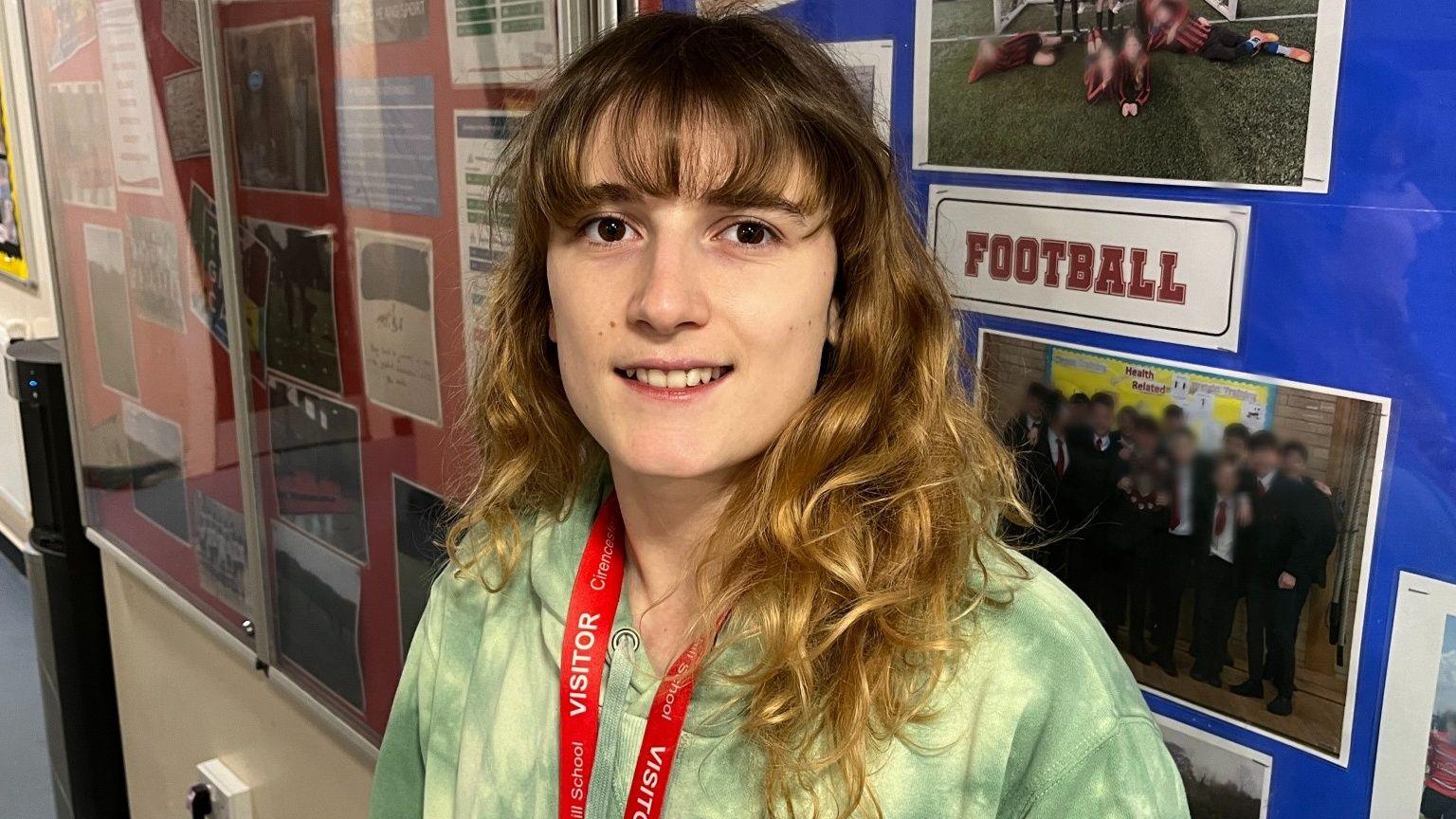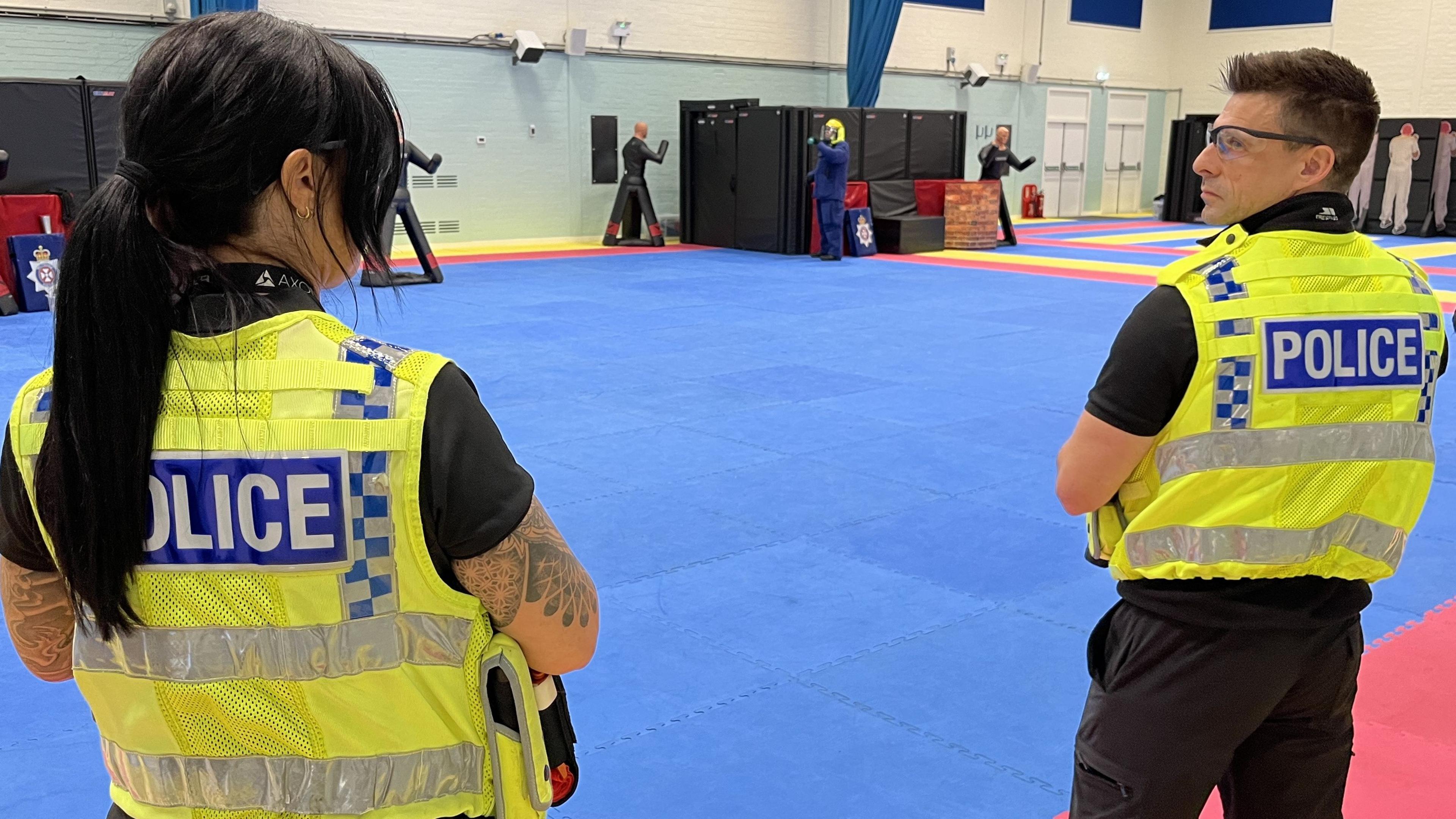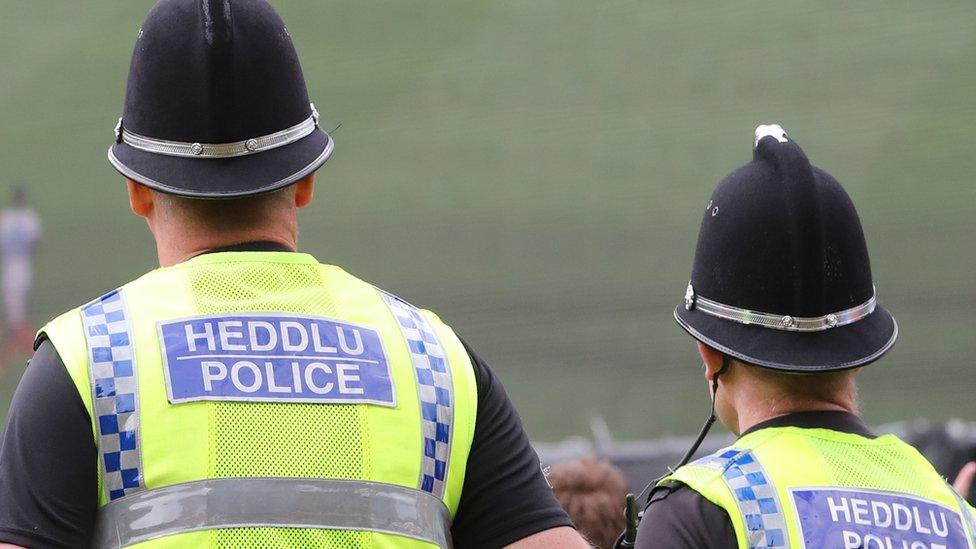Mission to tackle teenagers' 'trauma' with police
Listen to 16-year-old Rebecca - member of the IOPC Youth Panel
- Published
Young people are being urged to take part in a project designed to "empower" their interactions with police.
Teenagers are the highest group to experience possible misconduct by officers and suffer "potential trauma", an expert said.
To tackle this issue, young people are being asked to complete an anonymous online survey, external that is running until 13 December, which will help shape policing across England and Wales.
Rebecca, a police youth panel member from Swindon, said her ultimate goal was for "everybody to feel safe when they see police".
'Make a difference'
The Independent Office for Police Conduct (IOPC) Youth Panel aims to increase trust in the police complaints system and improve communication between officers and teenagers.
The panel takes findings from its annual survey and from the panellists' experiences to guide police training sessions and help educate frontline officers.
Rebecca is a Year 11 pupil at Cirencester Kingshill Secondary School and has been part of the IOPC Panel for 12 months.
"I wanted to make a difference. I'm concerned about knife crime, it's very dangerous at the moment," she added.
The panel is made up of 38 young people from across England and Wales who create the annual survey.

Anya Hutin is the project co-ordinator for the IOPC Youth Panel
A spokesperson for the IOPC said research shows that young people have one of "the lowest levels of confidence in the police complaints system".
"As a result, in 2018 we established our youth panel - where young people develop recommendations and solutions to improve the police complaint system so it better meets their needs," they added.
The panel has worked on peer engagement, delivering workshops with the police and conducts an annual survey of young people's views, the spokesperson said.
"The youth panel provides a vital youth voice to the organisation holding both us and the police to account," they added.

Officers' future training sessions are guided by results from the survey
Anya Hutin, 25, who is the project co-ordinator for the IOPC Youth Panel said "young people are one of the most disempowered sections in society".
They are also the "highest group to experience possible misconduct by the police and to not feel comfortable with their treatment", she added.
Sessions are designed to help police understand the "anxiety" and "possible trauma they [young people] may have with police", Ms Hutin said.
An annual report, external is also published from youth engagement sessions and the survey.
Related topics
- Published7 July 2024

- Published23 August 2020
